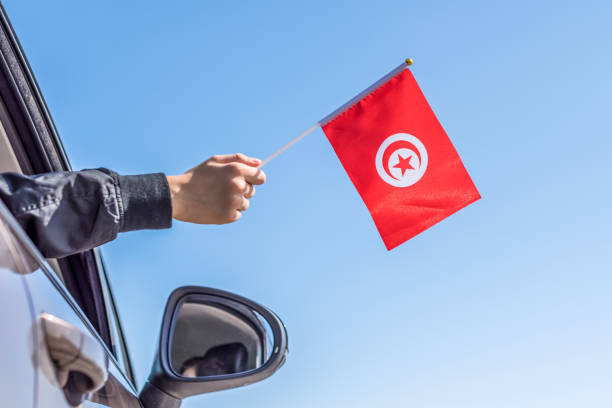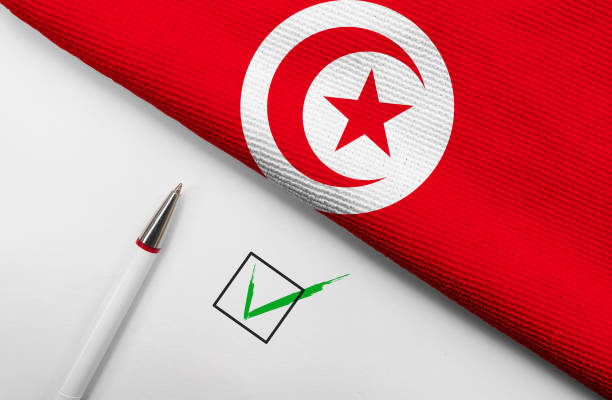
Tunisia is about to introduce a state-of-the-art e-Visa system, a way of processing visa issuance that was never used before by the country. This project, under the lead of the government, would make travel and business access totally modernized, making foreign nationals gain entry into the country with ease. Instead of having applicants visit embassies and consulates in person to register for a visa, it would be possible over the internet, hence reducing bureaucratic delays and increasing efficiency.

The soon-to-be-introduced e-Visa platform will modernize the Tunisian procedures related to visas, putting it in step with global trends in digital governance and border management. This online portal will afford applicants the opportunity to undergo the whole application process and get approval, thus reducing the processing time by a huge margin and facilitating the entry formalities of tourists, businesspeople, and other categories of visitors.
Tunisia's e-Visa program aims to boost tourism and economic growth by simplifying visa applications and attracting more visitors and investors.
In order to have the best technology and expertise in developing this e-Visa system, an international call was launched by Tunisia. This move underlines the commitment of the government in contracting the services of leading technology providers who can design, implement, and manage a fully digital visa platform at world-class standards. The international tender process would be an efficient way of attracting the best companies with a proven record in digital solutions and border management, with full assurance that the e-Visa platform will be at par in terms of security, efficiency, and ease of use compared with globally accepted standards.
Wider Digital Transformation: E-visa is also part of the wider program of digitization of public services and integration of technology in governance in Tunisia. The country adopts the use of digital systems to offer greater accessibility of its public sector, modernize, and adjust towards best practices across its borders. The effort of digital transformation represents an advantage of Tunisia's work towards infrastructure improvement, increased global competitiveness, and qualitative service delivery to its citizens and foreign visitors alike.
The e-visa will be a blessing to most tourists from countries in Africa, Asia, Central America, and the Middle East. However, tourists from countries such as those of Europe, Canada, the US, and the Gulf are exempted from applying for any visa in order to make stops in Tunisia.
|
Following citizens of these countries can enter Tunisia visa-free for up to 90 days with a valid passport: All European Union member states (except Cyprus), Algeria, Andorra, Angola, Antigua and Barbuda, Argentina, Australia, Bahrain, Barbados, Belarus, Bosnia and Herzegovina, Brazil, Brunei, Burkina Faso, Canada, Cape Verde, Chile, Comoros, Costa Rica, Côte d'Ivoire, Equatorial Guinea, Fiji, Gabon, Gambia, Guinea, Guinea Bissau, Hong Kong, Honduras, Iceland, Indonesia, Iran, Iraq, Japan, Jordan, Kazakhstan, Kiribati, South Korea, Kuwait, Libya, Liechtenstein, Malaysia, Maldives, Mali, Mauritania, Mauritius, Mexico, Moldova, Monaco, Montenegro, Morocco, Namibia, New Zealand, Niger, North Macedonia, Norway, Oman, Qatar, Russia, Saint Kitts and Nevis, Saint Lucia, San Marino, Saudi Arabia, Senegal, Seychelles, Singapore, Solomon Islands, South Africa, Switzerland, Turkey, United Arab Emirates, United Kingdom, United States, and Vatican City. |
The implementation of Tunisia's e-Visa completes a critical phase of modernization and digital governance in the country. With the introduction of an online method of applying for a visa, Tunisia is bound to place itself as more accessible to guests: tourists, businesspeople, and investors alike, therefore benefiting tourism and economic development. While going forward with its international tender for the project, Tunisia is setting an example for its neighboring countries through its positioning as modern and abreast of the times. It will not only ease entry into Tunisia but also present the country to the world as being on pace with the times through digital innovation.

1